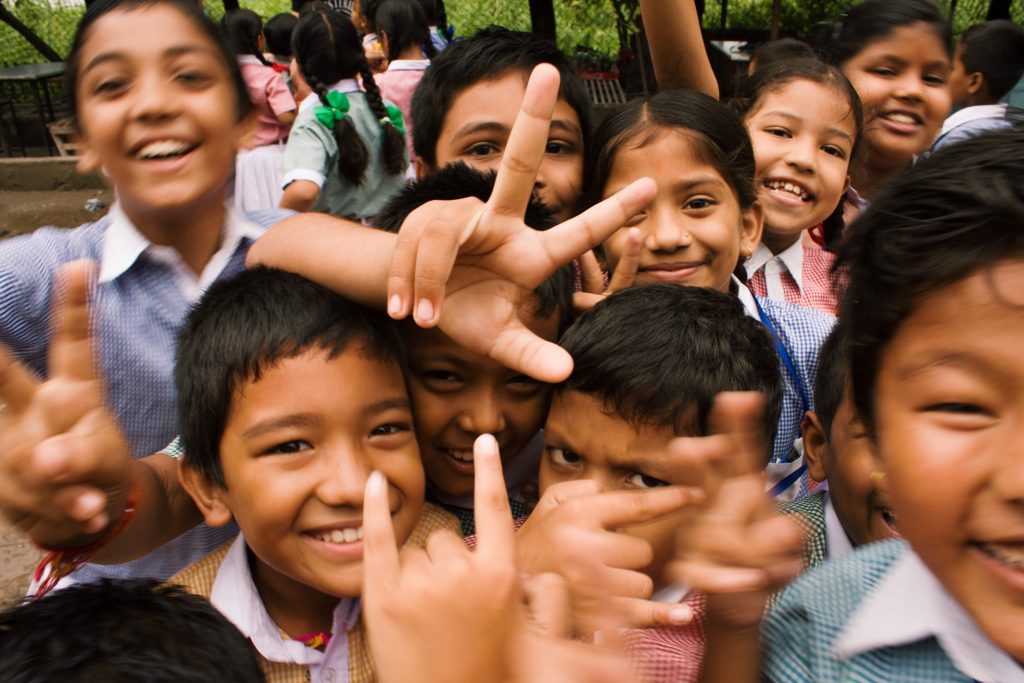Jahan Foster, a recent graduate from Birkbeck’s MSc Children, Youth and International Development, writes about how her studies opened her eyes to a range of research and literature, and instilled her with skills she’s putting to use in her new job.

I completed my MSc in Children, Youth and International Development at Birkbeck in October 2017 and enjoyed every part of my experience. Birkbeck attracts students from a wide variety of backgrounds and ages, and this was something I found unique about my experience, as I was able to meet and become friends with a diverse group of people, all of whom had different professional backgrounds and career aims.
 I decided to pursue this MSc having completed an undergraduate degree in Politics and French and then spending several years teaching, both in the UK and abroad. As part of my course my compulsory modules were in International Political Economy of Childhood, Social Studies of Childhood, and Researching Children and Childhood, and I took an option module in Education, Power and Resistances. My compulsory modules were fascinating and I enjoyed writing essays on subjects such as migration and their effects on children and young people. I was eventually inspired in the choice of my dissertation midway through one of my modules, during which we learned about transnational childhoods. This opened my eyes to a range of research and literature I would otherwise not have known about. I developed a dissertation proposal which focused on understanding the transnational and gendered identities of Latin American youth living in London. Having spent several years working in Spain and Latin America, I was interested in the growing size of this community in the UK. To collect data for this research I spoke with nine Latin American young people, aged between 16 and 19 years old, living in Lambeth and Southwark in south London, and learned about their recent migration to the UK, their experiences at school and their life now in London. Conducting these interviews highlighted the challenges of collecting primary data – I had to contact a number of schools and local organisations to try to recruit participants, and also spent time canvassing at festivals and events. However, speaking with these young people was one of the most enjoyable parts of the dissertation process and I learned a number of new skills that made me realise that I would like to develop a career in the research sector.
I decided to pursue this MSc having completed an undergraduate degree in Politics and French and then spending several years teaching, both in the UK and abroad. As part of my course my compulsory modules were in International Political Economy of Childhood, Social Studies of Childhood, and Researching Children and Childhood, and I took an option module in Education, Power and Resistances. My compulsory modules were fascinating and I enjoyed writing essays on subjects such as migration and their effects on children and young people. I was eventually inspired in the choice of my dissertation midway through one of my modules, during which we learned about transnational childhoods. This opened my eyes to a range of research and literature I would otherwise not have known about. I developed a dissertation proposal which focused on understanding the transnational and gendered identities of Latin American youth living in London. Having spent several years working in Spain and Latin America, I was interested in the growing size of this community in the UK. To collect data for this research I spoke with nine Latin American young people, aged between 16 and 19 years old, living in Lambeth and Southwark in south London, and learned about their recent migration to the UK, their experiences at school and their life now in London. Conducting these interviews highlighted the challenges of collecting primary data – I had to contact a number of schools and local organisations to try to recruit participants, and also spent time canvassing at festivals and events. However, speaking with these young people was one of the most enjoyable parts of the dissertation process and I learned a number of new skills that made me realise that I would like to develop a career in the research sector.
While I was writing my dissertation, I felt like the Department offered a lot of support – we had dissertation workshops instructing us on how to develop our literature review and methodology plus regular meetings with our supervisors. As part of my course I also took the module, Researching Children and Childhood, which helped me to understand the specific challenges and considerations to make when conducting research with children and young people.
During my MSc I completed research internships with various community organisations, which introduced to me the types of ways that research can be integrated into work at the local level. Since graduating I have been working with a health charity based in south London that gathers the views of people’s experiences of health services and represents them at national and local level. This involves holding surveys and conducting interviews with members of the public, and writing reports on their views. My academic experience has been incredibly useful in gaining work opportunities within the research sector, and the skills I have acquired, particularly in interviewing and writing literature reviews, have been highly sought after. I have been motivated to stay within academia, largely as a result of the great teaching and supervision I received from Karen Wells, and the range of topics and content that I was introduced to during my MSc. I have recently been accepted into a PhD at Birkbeck in their Department of Geography, with my research focusing on understanding the social reproduction strategies of Latin American families living in London.
